Why Ethnomathematics?
Our work is guided by academic researchers, community partners, and cultural practitioners who voyage with us in an ongoing process of navigating and wayfinding. We welcome you to explore below for why we collectively adjust our sails and how we do this according to diverse funds of knowledge that draw on the strengths of our local and global communities. Collectively, we embrace stewardship of our world and cultivate social justice by empowering educators to transform their lives and the lives of their students.
-
“As far as I know, no other academic program in ethnomathematics exists in the world. Its creation [at the University of Hawai‘i] opens new paths for research, where mathematics can be looked at from fresh and exciting standpoints. It will certainly promote international cooperation within different communities of researchers, from mathematics to anthropology through a long list of intertwined disciplines.”
 Ferdinando Arzarello International Commission on Mathematical Instruction (ICMI) Former President
Ferdinando Arzarello International Commission on Mathematical Instruction (ICMI) Former President -
“My visit [to Lily Uta’i’s 6th grade ethnomathematics class in Waimānalo, O’ahu] felt like I was with family and I appreciate you allowing me to be part of your family. I was particularly impressed with the ways students incorporated mathematics vocabulary when discussing aspects of the garden at Blanche Pope Elementary School. Doing mathematics can be both a window and a mirror. Too often, mathematics is a window without mirrors. This is not the case in Lily’s class where she has created opportunities for her students to know who they are and whose they are, which is important for identity development, agency, and catalyzing lasting, positive change.”
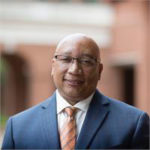 Robert Berry National Council of Teachers of Mathematics President
Robert Berry National Council of Teachers of Mathematics President -
“When I think of the expertise and deep commitment by faculty at the University of Hawai’i at Manoa, especially Linda Furuto who founded the program, I cannot think of a better place for teachers to experience a new relationship between humans, mathematics, and the planet. How different our classrooms and nations might look if more teachers experienced professional development in the Ethnomathematics Program!”
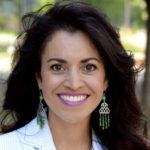 Rochelle Gutiérrez University of Illinois at Urbana-Champaign Professor of Mathematics Education, and Science for the People Circle Holder
Rochelle Gutiérrez University of Illinois at Urbana-Champaign Professor of Mathematics Education, and Science for the People Circle Holder -
“As we work to become a stronger indigenous-serving institution, programs such as the highly successful Ethnomathematics program help to train educators and develop curriculum using non-traditional approaches that appeal to our unique and diverse student body. Their vision of preparing K-12 teachers to provide culture- and values-based ethnomathematics instruction in schools and communities will strengthen the educational pipeline from K-12 into the university system.”
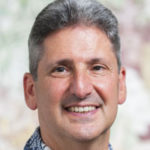 David Lassner University of Hawai’i System President
David Lassner University of Hawai’i System President -
“I was already a believer in ethnomath. The ‘why’ was easy to buy into. Now, I understand how it can be put to use from the experience you provided. As we move to create more relevant learning experiences for our students, it’s obvious that this should play an integral part of what we offer them. Purposeful, authentic, place-based learning.”
“Students, when provided lessons that build on their identity, culture, and history, become part of that legacy, ensure the knowledge is not lost, and shape the future. This ties directly into the HIDOE vision for our students to one day contribute positively to our community and global society.”
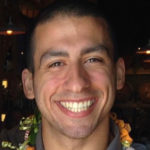 Joe Manfre Hawaiʻi Department of Education (HIDOE) State Math Specialist
Joe Manfre Hawaiʻi Department of Education (HIDOE) State Math Specialist -
“Kudos to the University of Hawaiʻi for establishing this essential pathway to preparation in 21st century mathematics education.”
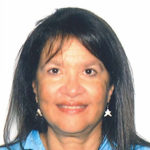 Sharon Nelson-Barber Director, Culture & Language in STEM Education Division, WestEd
Sharon Nelson-Barber Director, Culture & Language in STEM Education Division, WestEd -
“Mathematics is the dorsal spine of modern civilization, leading humanity, through mathematics education, to an era of peace and dignity for all. But for this we need to move away from sameness and look for new ways of thinking in mathematics education…I don’t know of any existing ethnomathematics degree programs. It is appropriate to place it in connection with STEM…I hope to follow your further creativity to improve mathematics education.”
 Ubiratan D’Ambrosio Professor Emeritus, State University of Campinas (Unicamp), Brazil
Ubiratan D’Ambrosio Professor Emeritus, State University of Campinas (Unicamp), Brazil -
“In a world threatened by anti-multicultural and anti-scientific discourses and their parallel acts of symbolic and physical violence against people and the planet, it is noteworthy that the University of Hawai’i has taken the lead to initiate a first-in-the-world ethnomathematics program. This unique graduate-certificate program educates teachers of all levels of schooling to understand, appreciate, and teach mathematics as the product of different cultures’ expressions of techniques and tools to address problems of their environments that pique their interest and challenges their social needs. In this way, ethnomathematics challenges the ideology of cultural supremacy and its catastrophic consequences for the survival of human cultures and Earth’s ecological systems.”
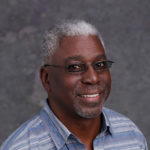 Arthur Powell Department Chair & Professor, Global Urban Studies/Urban Systems, Rutgers University
Arthur Powell Department Chair & Professor, Global Urban Studies/Urban Systems, Rutgers University -
“The Ethnomathematics Program is pioneering change. By taking traditional and modern knowledge and blending science and technology, they are creating major breakthroughs in education. I consider this program a true navigator of education.”
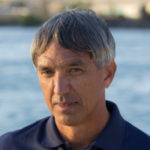 Nainoa Thompson President and Master Navigator, Polynesian Voyaging Society
Nainoa Thompson President and Master Navigator, Polynesian Voyaging Society
